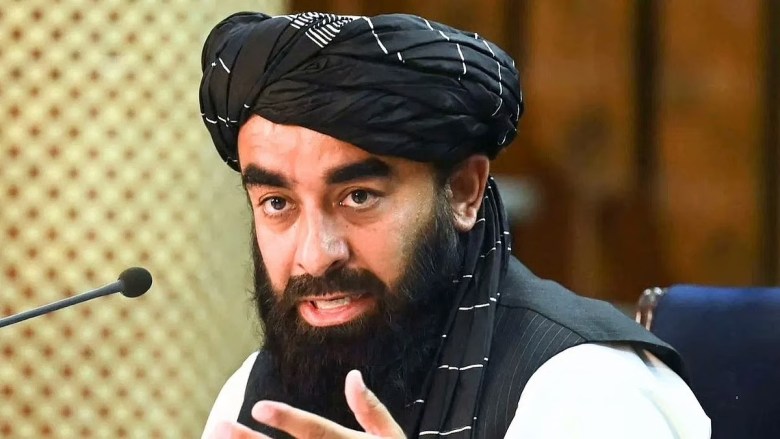Politics
Taliban’s Diplomatic Standoff Raises Regional Tensions

The recent talks in Istanbul between the Afghan Taliban and Pakistani officials ended in disappointment, highlighting the Taliban’s ongoing challenges in establishing diplomatic relations. The delegation from Afghanistan arrived unprepared and rejected Pakistan’s request for a formal commitment to combat cross-border terrorism, dismissing concerns regarding Tehrik-e-Taliban Pakistan (TTP) sanctuaries as “exaggerated.” This breakdown in negotiations underscores a persistent pattern of defiance by the Taliban, which has characterized their foreign policy since regaining power in August 2021.
Pakistan’s expectations during the talks were not unreasonable. Islamabad has long urged the Taliban to dismantle TTP bases within Afghan territory and to hand over individuals wanted for terrorism. The Taliban’s outright refusal to engage in discussions about verification mechanisms reveals a mindset that perceives itself more as a revolutionary group than a responsible government. This approach not only alienates Pakistan but also frustrates other countries, including Beijing, Riyadh, and Ankara, all of which have emphasized the importance of counterterrorism cooperation as a prerequisite for economic engagement.
The failure of the Istanbul talks poses significant implications for regional stability. Observers are left wondering whether the Taliban’s obstinacy is purely a result of their misjudgment or if it is being influenced by external forces. Recently, the Taliban has shown signs of warming relations with India, with diplomatic interactions framed as “development dialogue.” Yet, this shift comes alongside an increase in anti-Pakistan narratives amplified by pro-Taliban and India-linked social media accounts, raising questions about the Taliban’s independence in their defiance.
For Prime Minister Narendra Modi’s administration, an unstable Pakistan can serve strategic interests by diverting attention from domestic issues, keeping Pakistan preoccupied, and diminishing Islamabad’s influence, especially regarding Kashmir. An Afghanistan that refuses to cooperate and harbors anti-state militants aligns conveniently with India’s broader geopolitical objectives. While there is no public evidence of direct coordination, the overlap of interests remains striking.
The Taliban’s belief that Pakistan has “used and abandoned” them complicates the situation further. They view the TTP not as a terrorist group but as ideological allies, blurring moral lines and exacerbating regional tensions. This perspective not only isolates the Taliban but also risks pushing them further into the periphery of international diplomacy.
As the political landscape shifts, the consequences of the failed talks extend beyond mere diplomatic disappointment. If cross-border attacks persist, Pakistan is unlikely to remain passive. A military response, while fraught with risks, could become increasingly probable if diplomatic avenues remain closed. For Afghanistan, this means losing what little goodwill it has left with neighboring states, further entrenching its isolation.
The humanitarian impact is profound. Ordinary Afghans, who already face severe challenges due to hunger and poverty, bear the brunt of their leaders’ ideological rigidity. Each failed diplomatic effort translates into fewer trade opportunities, diminished foreign investment, and deeper isolation. The Taliban’s claims of defending Afghan sovereignty ring hollow when their actions suggest subservience to militant ideologies and external influences.
If the Taliban’s stance results from short-sightedness, it is tragic; if it is shaped by outside forces—particularly from India—it becomes dangerous. In both scenarios, Afghanistan risks being relegated to a pawn in larger geopolitical games, while South Asia inches closer to instability.
The Istanbul talks represented a potential turning point. Instead, they serve as a stark reminder that achieving peace requires a vision beyond immediate grievances. Without a willingness to engage responsibly with regional partners, the Taliban risks repeating the mistakes of the past, leaving Afghanistan in a precarious position on the international stage.
-

 Lifestyle4 months ago
Lifestyle4 months agoHumanism Camp Engages 250 Youths in Summer Fest 2025
-

 Sports4 months ago
Sports4 months agoDe Minaur Triumphs at Washington Open After Thrilling Comeback
-

 Business4 months ago
Business4 months agoKenvue Dismisses CEO Thibaut Mongon as Strategic Review Advances
-

 Sports4 months ago
Sports4 months agoTupou and Daugunu Join First Nations Squad for Lions Clash
-

 Top Stories4 months ago
Top Stories4 months agoColombian Senator Miguel Uribe Shows Signs of Recovery After Attack
-

 Health4 months ago
Health4 months agoNew Study Challenges Assumptions About Aging and Inflammation
-

 World4 months ago
World4 months agoASEAN Gears Up for Historic Joint Meeting of Foreign and Economic Ministers
-

 Business4 months ago
Business4 months agoOil Prices Surge Following New EU Sanctions on Russia
-

 Entertainment4 months ago
Entertainment4 months agoDetaşe-Sabah Violin Ensemble Captivates at Gabala Music Festival
-

 Entertainment4 months ago
Entertainment4 months agoBaku Metro Extends Hours for Justin Timberlake Concert
-

 Business4 months ago
Business4 months agoU.S. House Approves Stablecoin Bill, Sends to Trump for Signature
-

 Top Stories4 months ago
Top Stories4 months agoRethinking Singapore’s F&B Regulations Amid Business Closures








